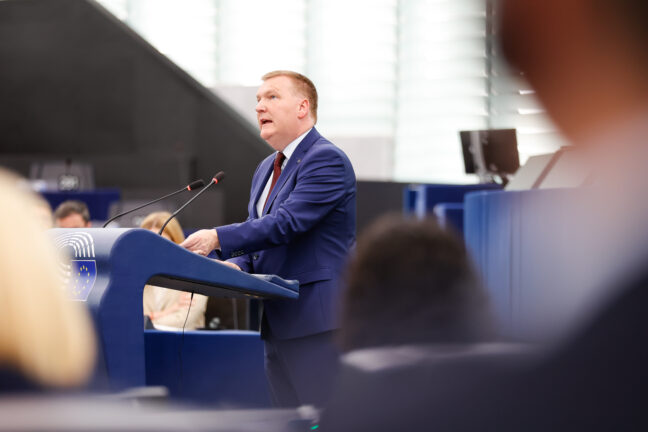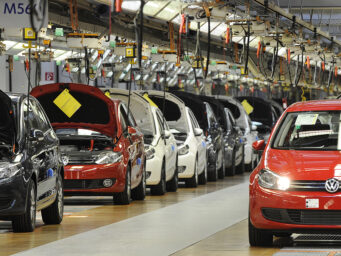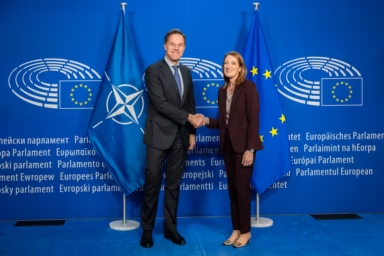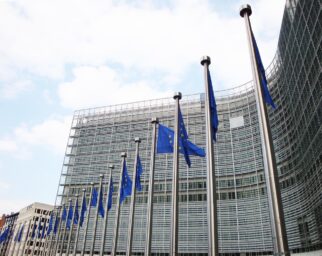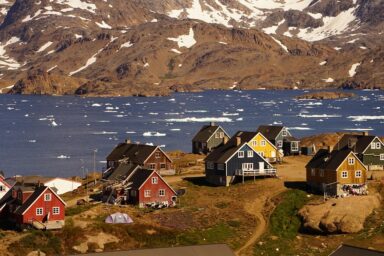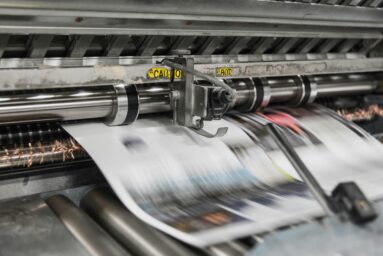The European Commission has finalised its proposal for the next Multiannual Financial Framework (MFF), adopting seven sectoral programmes aimed at reinforcing the internal market, judicial cooperation, and nuclear safety.
The European Commission finalised its new €2tn Multiannual Financial Framework (MFF) on Wednesday, 3 September. The EU executive arm adopted seven sectoral programmes designed to reinforce economic resilience, judicial cooperation, and strategic autonomy. Commissioner for Democracy, Justice, the Rule of Law and Consumer Protection Michael McGrath framed the package as a “dynamic, inclusive” blueprint for growth, though questions over governance gaps and geopolitical tensions shadow its rollout.
Five pillars
Five programmes anchor the budget’s first pillar. The €10bn Euratom research initiative dominates, with over half its funds earmarked for ITER, the experimental fusion reactor in France. Mr McGrath hailed ITER as “the world’s most ambitious fusion project”, a potential game-changer for carbon-free energy.
A parallel €1bn nuclear safety programme merges decommissioning efforts—notably extending support for Lithuania’s Ignalina plant—with cross-border safety protocols. The Pericles programme, renewed for a fifth phase, targets euro counterfeiting, a growing concern as cash use declines and digital fraud rises.
Greenland’s €530m allocation—a 135 per cent funding spike—signals Brussels’ Arctic ambitions. The Overseas Association Decision merges Greenland’s bilateral aid with support for 12 other overseas territories, creating a €1bn envelope. Mr McGrath called these territories “Europe’s forward posts”, noting their combined exclusive economic zones grant the EU “global maritime reach”.
You might be interested
Digital hopes, democratic risks
For Greenland, the cash secures access to critical raw materials and reinforces the bloc’s foothold in a region heating twice as fast as the global average. “Constitutionally linked” to Denmark, Greenland’s 56,000 residents—EU citizens—anchor a partnership blending sustainability pledges with resource competition.
The Justice Programme, doubling its budget to €800m, seeks to digitise courts, combat corruption, and expedite cross-border rulings. Mr McGrath linked judicial efficiency to economic health: “Weak justice systems and corruption make markets less competitive.”
Weak justice systems and corruption make markets less competitive — Commissioner for Democracy, Justice, the Rule of Law and Consumer Protection
Three objectives guide the funds: streamlining cross-border enforcement of judgments, training legal professionals to foster a “common judicial culture”, and ensuring “non-discriminatory access” for vulnerable groups. Synergies with the European Social Fund and Erasmus+ aim to amplify impact—yet oversight remains opaque.
Vague rules on rule of law
Pressed on Hungary’s judicial politicisation during his press conference, Mr McGrath conceded safeguards are “active and hands-on” but vague. Funding hinges on annual rule-of-law reports and the EU’s Justice Scoreboard metrics—tools critics deem reactive. “We will be ensuring… appropriate checks and balances,” he said, offering no specifics on penalising backsliding.
When asked if illiberal governments could hijack funds, he deflected: “We work through member-state authorities.” For civil society groups wary of tightening NGO scrutiny, Mr McGrath pledged “robust oversight” but admitted “room for improvement”.
The single market is our union’s engine for business. — Michael McGrath
The €6.2bn Single Market and Customs Programme merges four funds to slash red tape and modernise trade infrastructure. Over €2.7bn will overhaul customs IT systems and create an EU-wide data authority, aiming to curb smuggling and unsafe imports. Another €2.7bn targets internal market barriers, consumer protection, and competition policy.
A €475m Fiscalis tranche drives digital tax cooperation, while €363m bolsters anti-fraud efforts—a nod to recurring scandals like Qatargate. “The single market is our union’s engine for business,” Mr McGrath said, framing the package as a shield against “unfair competition”.
Greenland’s geostrategic price tag
Mr McGrath’s technocratic pitch faced pushback on geopolitics. Asked about Ireland’s opposition to the Mercosur trade deal—a pact critics say sacrifices EU farmers for South American market access—he urged patience: “Member states shouldn’t rush to judgment… study the new material.” The deal’s “additional safeguards”, he argued, balance economic gains with environmental and labour standards. The stance appears to clash with Dublin’s fears of beef-sector collapse.
On US threats to retaliate against GDPR enforcement, Mr McGrath struck a defiant tone: “Our sovereign right to set our own rulebook is something we hold dear.” Washington’s warnings of visa bans for EU regulators drew a curt dismissal: “The transatlantic relationship is vital… but European rules apply in Europe.” The rebuttal underscores Brussels’ tightrope walk—asserting digital sovereignty while avoiding a full-blown trade war.
Greenland’s funding surge—€530m for sustainable development and raw-material partnerships—raised eyebrows. Mr McGrath justified it as an investment in “critical raw materials” and energy security, noting the island’s “geostrategic weight” in an Arctic reshaped by climate change and Sino-Russian interest. Merging bilateral and regional aid, he argued, lets the EU tackle “high costs and small markets” plaguing overseas territories. Critics counter that the cash risks inflaming tensions with NATO allies eyeing Arctic resources.
Fragile consensus
The MFF’s scale reflects ambition, yet its success hinges on fragile consensus. Judicial reforms assume member-state goodwill—a gamble amid democratic backsliding. Hungary’s Viktor Orbán, fresh from blocking €50bn in Ukraine aid, exemplifies the challenge. Mr McGrath’s assurance that the Justice Programme will “strengthen the rule of law” rings hollow without enforcement teeth.
Greenland’s windfall, while strategic, exposes the EU’s resource scramble. As China dominates rare-earth processing and Russia militarises the Arctic, Brussels bets on a territory with shaky infrastructure and vast untapped minerals. The gamble assumes Greenland will prioritise EU partnerships over rivals—a risky wager given its history of playing suitors against each other.
Our sovereign right to set our own rulebook is something we hold dear. — Michael McGrath
Mercosur and GDPR tensions reveal deeper fissures. The EU’s quest for “strategic autonomy” clashes with reliance on US security and South American markets. Mr McGrath’s plea for patience on Mercosur—amid Irish and French resistance—highlights the deal’s precarious politics. GDPR’s global ripple effects, meanwhile, test Brussels’ resolve as US tech giants lobby against “protectionism”.
A ledger of trade-offs
Mr McGrath’s €2tn budget is less a bold vision than a mosaic of compromises—digital dreams tempered by governance gaps, Arctic ambitions shadowed by rivalry, and growth pledges strained by democratic decay. Its legacy will hinge on execution: Can digitised courts outpace autocratic drift? Will Greenland’s minerals justify the price? Can Mercosur’s safeguards placate sceptics? For now, the MFF stands as a ledger of hopes—and unresolved calculations.
